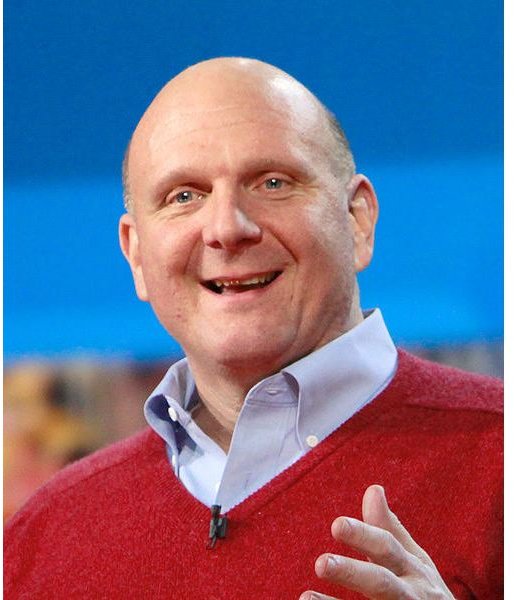Why Has Microsoft Gone All Hacker Friendly with Windows Phone 7?
If ever there was a man in the world of technology and computing for whom the word “friendly” was definitely not coined, it was Steve Ballmer. The current Microsoft CEO has been a major force of nature within the software and gaming console giant for most of its lifespan, a time which has seen him involved with a number of aggressive buyouts in order to expand the Redmond-based multinational’s range of products.
And let’s face it; he hasn’t exactly been unsuccessful since taking over the running of the company after Bill Gates stepped down, with Microsoft Office and Xbox 360 moving in ever more impressive ways to reach out to new users.
Yet here we are, in the post Bill Gates era, observing a Microsoft that is reaching out to user communities in a positive way and encouraging them to hack their Windows Phone platform, in much the same way as Google has done by making Android open source, and in a complete mirror image of what Apple would do.
Following the announcement that Microsoft are lending their support to an official WP7Chevron device unlock, one has to wonder if Steve Ballmer has been misjudged for all this time, or whether it is part of a wider strategy at Microsoft to embrace hackers and solo developers.
What WP7Chevron’s Unlock Will Mean to Microsoft
After releasing Windows Phone 7, Microsoft invited hackers to break the protection on the phones, a challenge to create a “jailbreak” situation whereby access could be gained to all of the device’s features. This was quickly achieved by the WP7Chevron team, who were soon invited to Microsoft HQ for tea, cookies and t-shirts.
There is clearly a scent of cynicism about the way the Ballmer-led Microsoft is courting the WP7Chevron team, perhaps aiming to overcome years of bad press by appearing friendly and not liable to speed-dial the legal team every week.
Then again, WP7Chevron is a tiny aspect of Windows Phone 7, let alone Microsoft. There appears to be a genuine interest from Redmond in aiding the WP7 user and developer community.
Engadget’s recent report confirms what many Windows Phone observers had expected to happen following Microsoft’s initial “have a go at hacking it” offer in late 2010 – they’re allowing the WP7Chevron team to offer a paid service for devices to be unlocked, thereby allowing the sideloading of homebrew apps.
The Microsoft Renaissance

Some might call this cynical; others might describe it as smart; ultimately, Steve Ballmer, a man for whom you will find plenty of unflattering descriptions in books and articles about Microsoft and their role in the computing industry, happens to be the man in charge right when Redmond appears to be undergoing some sort of renaissance.
There may be some who would argue that Microsoft never went away, and this much is true, but certainly with the Windows Mobile 6.5 and Windows Vista debacles, any interested observer might have wondered just what on earth was going on that could possibly have led to the people in charge of those two projects to sign them off, not to mention question how Microsoft could recover.
At a time when large companies such as Sony, Nintendo and Sega are being hacked, Microsoft – surely a prime target not so long ago – seems to have so far escaped unharmed. Meanwhile the previews of the Mango release of Windows Phone are generating a good buzz, Bing delivers a great feeling every time you search, Kinect is doing everything that was expected of it and more, and the previews of Windows 8 reveal a user interface that is less operating system and more human.
Microsoft Today: Friendly?
Throw in a revision of the Microsoft support pages and the company virtually giving Microsoft Office away (via the browser-based apps) and all of a sudden you wonder if the company was ever really that bad; after all, Ballmer has been there since 1980, he was a key player back in the days when you had to pay to access a Hotmail account from Outlook, and has been knee-deep in the various anti-competition strategies that Microsoft has been accused of over the years.
Was Microsoft simply misrepresented over all these years? Or is this new public face a response to the years of negative publicity, a reaction to the threat of becoming an industry monolith, and the considerable downsizing that this might mean at some point in the future?
Looking at Microsoft today, it is hard to tell. They’re clearly the same company as the one that upset the European Union over the dominance of the Internet Explorer browser, but their stance on hackers and Windows Phone 7 is in complete disagreement to the expected reaction.
While Apple spend millions of dollars preventing the iPhone from being unlocked with the jailbreak process, Microsoft is to all intents and purposes happy for the WP7Chevron team to apply a similar unlock.
Could it be that Microsoft plan to downsize their legal team, or are they genuinely a changed company?
Or is the truth something much simpler – that Steve Ballmer and Microsoft are happy to get one over on Steve Jobs and Apple on any playing field?
References
- Engadget, https://www.engadget.com/2011/06/18/chevronwp7-labs-will-jailbreak-your-windows-phone-with-microsoft/
- Image credit: Wikimedia Commons/Off2riorob
- Image credit: Windows Phone Newsroom, https://www.microsoft.com/presspass/presskits/windowsphone/imageGallery.aspx
